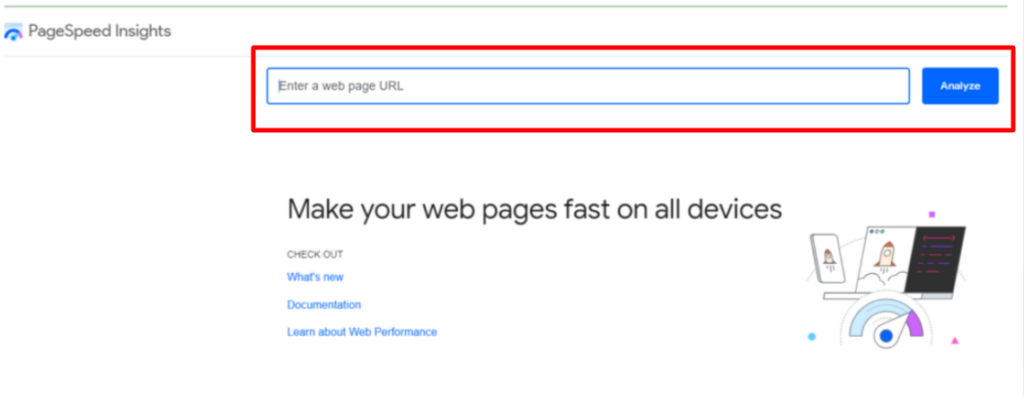These days, businesses are constantly conducting a Shopify SEO audit to ensure their Shopify store is on the right track.
This is because the world of e-commerce is usually changing, and it’s essential to stay ahead of the competition. This analysis can help you find opportunities to improve your website and succeed in online business.
In this article, we’ll explain why a Shopify SEO audit is essential and give you a step-by-step guide to make your online store more effective.
- Why Conduct a Shopify SEO Audit?
- Steps to Elevate Your E-Commerce Strategy
- Why a Shopify SEO Audit Is Your Winning Strategy
- FAQ
- 1: What is a Shopify SEO Audit, and Why Do I Need One?
- 2: How Often Should I Conduct a Shopify SEO Audit?
- 3: What Tools and Resources Can Help with a Shopify SEO Audit?
- 4: Are There Any Common SEO Issues a Shopify SEO Audit Can Uncover?
Why Conduct a Shopify SEO Audit?
Before we dive into the nitty-gritty of Shopify SEO audits, let’s first understand why they are essential for your e-commerce success.
Improved Visibility
In the digital marketplace, visibility is everything. When potential customers search for products or services your store offers, you want your Shopify store to appear at the top of search engine results pages (SERPs).
A well-executed Shopify SEO audit can help you achieve higher rankings, driving organic traffic to your site.
Enhanced User Experience
SEO is not just about pleasing search engines; it’s also about providing a better user experience.
An audit helps identify issues with website navigation, load times, and mobile responsiveness, all of which can impact how users perceive and interact with your site.
Increased Conversions
A higher rank in search results can lead to increased organic traffic. When your website is optimized for the right keywords, it attracts a more relevant audience, increasing the likelihood of conversion.
A well-structured SEO audit can pinpoint the keywords that matter most to your target audience.
Competitive Advantage
Your competitors are likely investing in SEO as well.
By conducting regular Shopify SEO audits, you can stay ahead of the curve, adapt to algorithm changes, and maintain a competitive edge in your niche.
Steps to Elevate Your E-Commerce Strategy
Now that we understand why Shopify SEO audits are essential let’s explore the steps you can take to elevate your e-commerce strategy.
Step 1: Keyword Research
Keyword research is the foundation of any successful SEO strategy and is the starting point of your Shopify SEO audit.
Begin by identifying the most relevant keywords to your products or services. Use tools like Google Keyword Planner or SEMrush to discover search terms with high search volume and low competition.
Incorporate these keywords throughout your website content, including product descriptions, blog posts, and meta tags.
Step 2: Technical SEO Analysis
Technical SEO involves optimizing the technical aspects of your website to improve its performance in search engines. During your Shopify SEO audit, pay close attention to the following technical elements:
Website Speed: Slow-loading pages can lead to higher bounce rates. Use tools like Google PageSpeed Insights to identify and address speed issues.

Mobile-Friendliness: Ensure your site is mobile-responsive, as Google prioritizes mobile-friendly websites in its rankings.
Indexing and Crawlability: Use Google Search Console to check if Googlebot can crawl your site effectively. Fix any crawl errors and ensure your sitemap is up to date.
URL Structure: Create clean and descriptive URLs for your product and category pages. Avoid long, confusing strings of numbers and symbols.
Step 3: On-Page Optimization
On-page optimization involves optimizing individual pages on your Shopify store. Here’s how to do it effectively:
Title Tags and Meta Descriptions: Craft compelling and keyword-rich title tags and meta descriptions for each page. These elements are what users see in search results, so make them engaging.
Header Tags: Use H1, H2, and H3 header tags to structure your content logically. Include keywords in these headers where relevant.
Image Optimization: Optimize images for faster loading times and include descriptive alt text for accessibility and SEO.
Product Descriptions: Write unique and persuasive product descriptions that incorporate relevant keywords naturally.
Step 4: Content Strategy
Quality content is the backbone of SEO. Your content should provide value to your audience while incorporating keywords strategically.
Consider starting a blog on your Shopify store to regularly publish informative and engaging content related to your products or industry. This not only attracts organic traffic but also establishes your store as an authority in your niche.
Step 5: Backlink Analysis
Backlinks, or links from other websites to yours, play a crucial role in SEO.
Conduct a backlink analysis to identify which websites link to your Shopify store. Focus on building high-quality, relevant backlinks from authoritative websites in your industry.
Avoid spammy or low-quality links, as they can harm your SEO efforts.
Step 6: User Experience (UX) Evaluation
User experience is a ranking factor for Google, so providing a seamless and enjoyable browsing experience is essential. Pay attention to:
Website Navigation: Ensure your site is easy to navigate, with clear menus and categories.
Mobile Optimization: Test your website on various mobile devices to ensure it functions well on all of them.
Page Layout: Keep your page layouts clean and uncluttered, making it easy for users to find what they want.
Page Load Times: As mentioned earlier, optimize page load times for desktop and mobile users.
Step 7: Monitoring and Continuous Improvement
The work isn’t over once you’ve completed your initial Shopify SEO audit and implemented the necessary changes. SEO is an ongoing process, and search engine algorithms are constantly evolving.
Monitor your website’s performance using tools like Google Analytics and Google Search Console.
Regularly update your content and adapt your strategy to stay competitive in the ever-changing e-commerce landscape.
Why a Shopify SEO Audit Is Your Winning Strategy
A Shopify SEO audit is vital in elevating your e-commerce strategy. It improves visibility, enhances user experience, increases conversions, and gives you a competitive advantage.
In an interview, Robb Fahrion, Founder and Partner at Flying V Group, explained how an SEO audit is essential.
An audit is essential because it provides a baseline for our current position in terms of keyword rankings. This helps us determine where to focus our efforts to improve our rankings and drive high-intent traffic to our website.
Following the steps outlined in this guide, you can optimize your Shopify store effectively and pave the way for e-commerce triumph.
However, remember that SEO is an ongoing process that requires effort and flexibility to stay on top of the digital market.
FAQ
1: What is a Shopify SEO Audit, and Why Do I Need One?
A Shopify SEO audit comprehensively analyzes your online store’s search engine optimization. You need one to enhance your e-commerce strategy by improving visibility, user experience, and increasing conversions. It helps you determine what’s working well, what needs improvement, and what opportunities you can take advantage of. Getting one can make your store more visible, user-friendly, and ultimately boost your sales. It’s an essential step in improving your online business strategy.
2: How Often Should I Conduct a Shopify SEO Audit?
How often you conduct a Shopify SEO audit depends on your store’s size, how many other stores you’re competing with, and if Google has made any changes to decide which websites to show first. Usually, doing an audit once a year is a good idea. But if you see significant changes in how your website is doing, you might need to do it more often.
3: What Tools and Resources Can Help with a Shopify SEO Audit?
Several tools and resources can assist you in conducting a Shopify SEO audit. The most popular tools are Google Analytics, Google Search Console, SEMrush, Moz, and Ahrefs. These tools can help you improve your website’s visibility and attract more customers.
4: Are There Any Common SEO Issues a Shopify SEO Audit Can Uncover?
Yes, a Shopify SEO audit can find issues like slow-loading pages, links that don’t work, repeating information, and missing important details. It can also identify ways to use keywords and make the website easier for search engines to find, which can help boost its ranking.






0 Comments